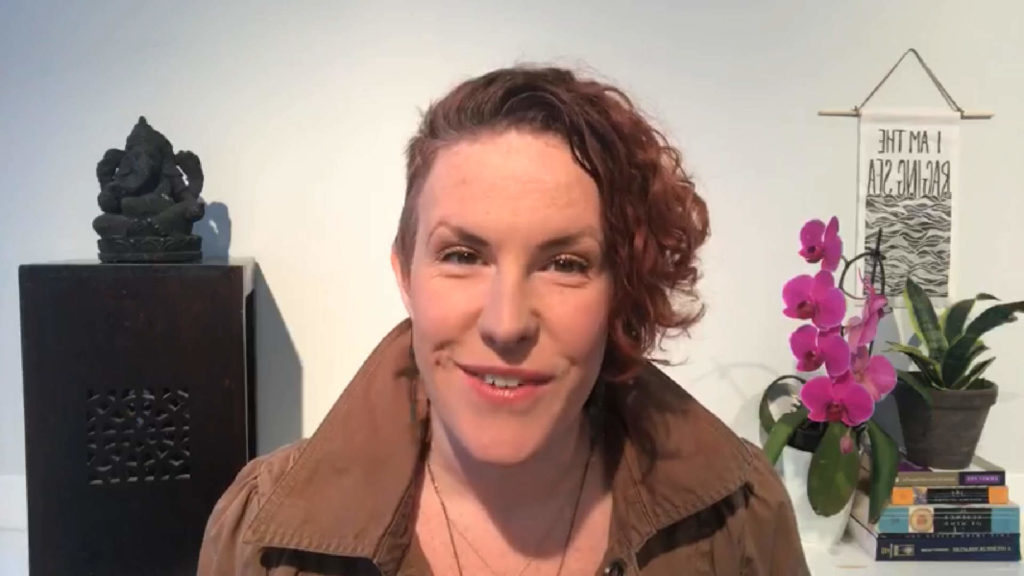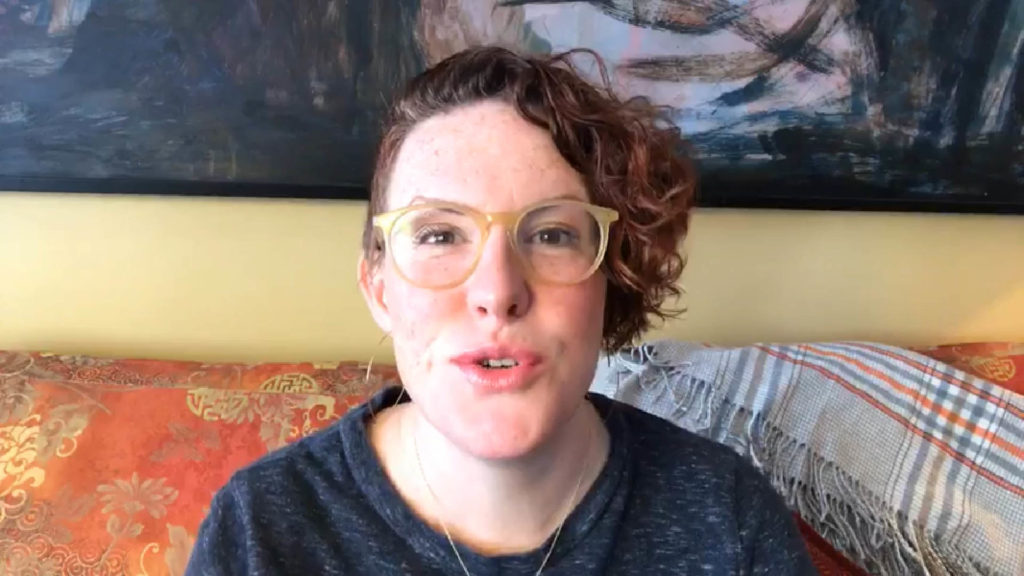“Every wildly successful thing in this dimension of reality was preceded by a thought.” In this episode, host Lola Wright guides you through the use of affirmations to bring about the things you desire in your life.
On a previous episode of this podcast, Bodhi Center’s Creative Producer Tyler Greene asked Lola how she stays grounded “in the midst of all of this?” Her reply was “I tell on myself.” On this episode, Lola continues her practice of using her own encounters with her egoic self to guide you through similar challenges.
This episode features host Lola Wright in conversation with Bodhi Center’s Creative Producer Tyler Greene.
Listeners to And This Is Bodhi with Lola Wright know Lola as a master public speaker, a bold and unapologetic presence on the planet. But, as she shares, “being a loud, bold, big woman was not always easy.”
After her parents divorced, Lola left the wealthy Northern Chicago suburbs and found a greater sense of belonging among counter-cultural scenes in the city: going to punk parties with Hare Krishnas, hanging out in clubs, and hanging out in the Chicago hip-hop scene. Eventually Lola entered into an intimate relationship and had her first child at the age of 18.
Lola’s young adult life was a search for a greater understanding of the world and how to find meaning. She read everything she could get her hands on about the Black American experience: books like Soul on Ice by Eldridge Cleaver and writings by Assata Shakur. She discovered the spiritual teacher Michael Beckwith and eventually Bodhi. She describes the process of learning to move beyond deeply painful experiences and the limiting self-definitions that accompanied them and to embrace forgiveness and growth. Finally, Lola shares a practice with listeners to inspire their own growth beyond limiting self-definitions and thought patterns.
Lola also did a TED talk, and appeared as a guest on The Rebel Mindset podcast.
This episode features part two of host Lola Wright’s conversation with Saul Williams.
Saul Williams has traveled the world as an artist, activist, and provocateur of deeper and more comprehensive thought patterns. Much of Saul’s music is based on political activism and protest, but in this conversation he describes a project that stretched beyond his usual areas of focus. He says, “I decided to work on this album called Volcanic Sunlight where I just wanted to acknowledge that there were a lot of other emotions flowing through me beyond this dissection of race and class… and I just wanted to express the love that I feel, because in fact everything that I’ve ever said has come out of love.”
They also discuss an increase of Christianity in hip hop. Saul says, “It’s great to have your faith and… what moves you, that’s wonderful. But when I think of that projected, when our military is in predominantly Islamic countries firing weapons and operating on Christian principles out loud, you know? Conflating terrorism and Islam, and rappers are like ‘my God is the greatest God’… from America, I’m like, ‘okay, are you making specifically music for the soldiers to sing along to so they can feel comfortable as they shoot these black and brown kids around the world?’”
They also discuss some of the repercussions of conservative Christianity’s exportation to other countries, including efforts to promote an anti-gay law in Uganda. The Netflix series The Family also documents and explores this gross practice in America’s recent past.
Lola and Saul discuss the upcoming presidential election, and how the 2016 election inspired Lola to begin the project Normal white people. “Using real and untold American history, current events and self-reflection, participants are committed to uncovering personal biases, discovering the changes necessary within the participant, and creating a personal path of inspired action that moves the evolutionary impulse of humanity toward a loving and just global society.”
Saul makes an impassioned argument for Americans to learn the true, untold history of the country and its founding. One source we recommend for further reading is Howard Zinn’s A People’s History of the United States.
Host Lola Wright interviews inaugural guest Saul Williams. Williams has traveled the world as an artist, activist, and provocateur of deeper and more comprehensive thought patterns. This episode features the first installment of their two-part conversation. They discuss Williams’ evolution out of the faith he was raised in, and his incredible ability to give space and place to the full range of his emotions. They also get into family life, sharing stories of how they dealt with their parents’ evolution when they were younger, and now navigating life and change as parents themselves.
Coming in late October from the Bodhi Center in Chicago, And This Is Bodhi with Lola Wright is a weekly podcast hosted by Lola Wright that offers interviews, meditations, and reflections intended to bring awareness to the unconscious parts of you, loosen the grip of your neuroses and beg the question, “What contribution am I here to make?” It’s a thought-provoking, humorous and heart-opening space that promises to support you in your awakening.

Try, if only for today, to cultivate a discipline and a mindful practice of speaking affirmatively: what can occur in your life can be truly transformational. Speak into your comments, into your relationships, into everything with affirmation, and know that no matter what is going on in your experience: there is ENOUGH. Read More

Do you identify with the traditionally religious path, the spiritual path, or the secular path? People who critique the spiritual path suggest that by insinuating that people are capable of ANYTHING, we are misleading people, who will then be disappointed when their lives stay broken. Read More
